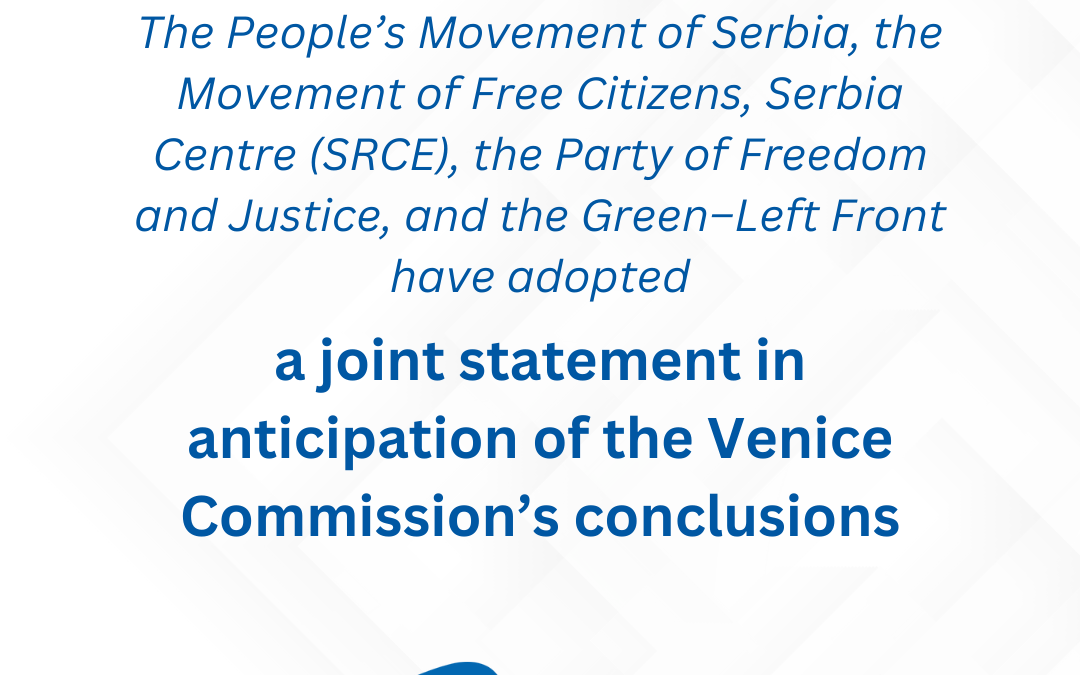
To mark the 50th anniversary of the signing of the Helsinki Final Act, the Forum for International Relations of the European Movement in Serbia organised a panel discussion titled “Half a Century after the Helsinki CSCE – The OSCE and European Security under New Challenges”, held on 25 June 2025 at the Human Rights House in Belgrade.
Participants reflected on the importance of the Helsinki Act for the development of the European security architecture, the strengthening of interstate trust, and the promotion of human rights, as well as on the current challenges the OSCE faces in light of the war in Ukraine and the shifting international landscape.
The panel featured:
– Goran Svilanović, former Minister of Foreign Affairs of FRY/SCG
– Branka Latinović, former Ambassador at the Ministry of Foreign Affairs
– Vladimir Bilandžić, former Adviser at the OSCE Mission to Serbia
– Sonja Biserko, President of the Helsinki Committee for Human Rights
The discussion was moderated by Duško Lopandić, President of the Forum for International Relations of the European Movement in Serbia.
Addressing the current role of the OSCE, Goran Svilanović stated that the organisation is now in a serious political and financial crisis, which significantly hampers its functioning and ability to respond to present-day security challenges. He added that the OSCE holds particular importance as the only remaining multilateral platform for dialogue with Russia.
Branka Latinović agreed with this assessment, emphasising that preserving the OSCE is vital for European security, despite the decreasing political and financial engagement of its member states. She also noted that the future of the OSCE will largely depend on whether Europe will see the emergence of a new Willy Brandt – a visionary leader ready to take bold political steps toward restoring dialogue and cooperation.
Vladimir Bilandžić recalled the historical role of the OSCE (then CSCE) as the only institutional platform enabling dialogue between East and West during the Cold War. He stressed that the Helsinki Final Act of 1975 was crucial for establishing a minimal level of inter-bloc trust and for introducing human rights into the broader security framework, which had lasting consequences for the internal evolution of socialist states. Bilandžić concluded that even then, the OSCE demonstrated how multilateral mechanisms—despite deep ideological divisions—can play a constructive and transformative role in European security.
Sonja Biserko emphasised that in today’s geopolitical context, the OSCE remains an important framework for the protection of human rights, especially as we witness the outbreak of new wars. She pointed to the importance of civil society actors continuing to rely on OSCE mechanisms, which still represent a meaningful link to international oversight and solidarity.




